Caretakers of the Seeds
We do not own the seeds we sell; we are simply caretakers of the seedstock, maintaining genetic purity, quality and viability while they are in our care. These seeds – all of them – belong to humanity. They are what have kept us alive for the past 12,000 to 15,000 years once the human race transitioned from hunter-gatherers into a more agricultural society, growing and saving the seeds from year to year, putting aside the very best seeds for planting the next year.
It is impossible to our way of thinking for anyone to “own” or “patent” seeds, as they are the very lifeblood of our race.
This is our full-time job as well as our consuming passion, not just a passing fancy or whimsical interest. This, our life’s calling, demands every bit of education, experience, creativity, energy and enthusiasm that we have. Everyday. We see, looking back, that every single thing that we’ve done in our life has led us up to this point and has been a preparation for this work that has selected us.
We have come to realize that the more knowledge and experience that we gain, the more that have yet to gain. Our road ahead is full of learning and we welcome that. We are eternally grateful for the mentors that have most graciously taken us under their wing, educating us and showing us the best possible ways to move forward with moral and ethical integrity, as well as seed purity, vitality and quality. Thank you ever so much! We are in your debt.
There are those who want to put seed companies out of business, advocating for everyone to save their own seeds and maintain their own seed banks and seedstocks. This is a noble proposition, but we don’t believe it to be feasible. We have almost 20 years of growing and soil building knowledge and experience behind us, yet we feel in so many ways that we are just beginning our journey into deeper knowledge. This is our commitment, to bringing out the best varieties and maintaining the highest quality of seeds and it takes all of our time and then some. We don’t see everyone as being interested or able to make this commitment over the long term. This is one of the main reasons why viable, family owned and run seed companies are so critically important today. It is human scale agriculture in the purest form, at the very beginning of the cycle of food.
We see diversified, decentralized and local human scale agriculture as being the answer to how we are going to feed ourselves in the long term. It starts with the absolute best seeds possible, which is in turn made possible by individual seed companies that have a commitment and passion to constant, careful observation and maintenance of the highest quality seeds, correcting genetic drift, anomalies and other problems as they arise in partnerships with highly dedicated and experienced seed growers who are experts in their fields.
This doesn’t and can’t happen overnight or in a short time frame; it takes years and years. We are often looking 3 – 5 years into the future in order to introduce a new variety of seed from the time it arrives in our hands. We do the initial evaluation grow-out, and if we like it one of our growers will do another grow-out for observation of any variability, drift or evidence of possible cross breeding. The subsequent grow-outs ensure that each new generation is growing true to the previous one and the established standard for that variety. Each grow-out requires a full season. If there are problems, they are evaluated to see what is required to correct them, and if it is worth the time or if it would be better to start with another variety that looks more promising. After the evaluations the production grow-out begins taking place. This in itself may take 2 or more years, depending on how much seed we have to start with. Some seed production takes 3 or more years just to reach a genetically viable starting population. From there the seed production growing takes place, and we can offer that seed variety for sale.
This level of dedication is labor and resource intensive, one of the reasons that diverse family seed companies are needed to provide the quality of seed we need to grow our food. Individual gardeners can participate in saving and preserving seeds and diversity as well, learning to save a smaller number of particularly tasty varieties on a smaller scale. We strongly encourage everyone to try saving at least a small portion of their seeds. It is a wonderful education into the miracle that is seed, along with the irrepressible adaptability of the seed. The humble strength of life is clearly shown each spring when moist warm soil breaks the dormancy of a seed, giving it another chance to express its full genetic encoding and potential. As with gardening, saving seeds will make you a better observer, a better gardener and a better steward of your part of the earth.
We feel that it is through a collaborative effort between small family run seed companies, seed saving exchanges and dedicated individual gardeners that the strength of the seed future is the strongest. Independent, decentralized yet cooperative seed production and distribution is the most robust and resilient model that offers the best protection against the loss of seed varieties to a patent or consolidation effort.

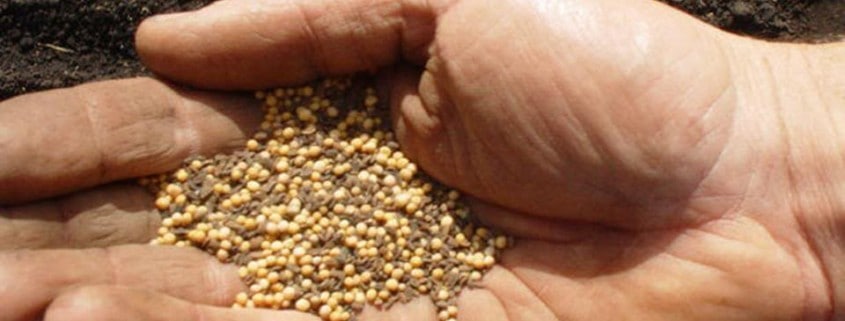

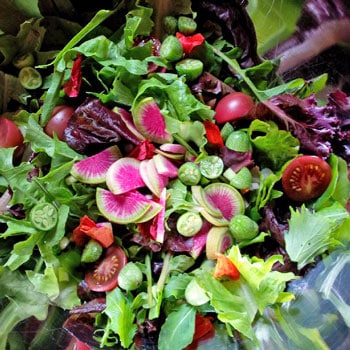
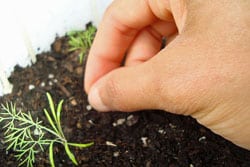
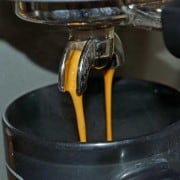
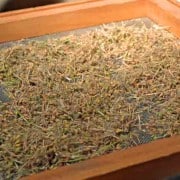
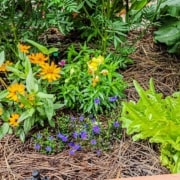 © 2024 Terroir Seeds | Underwood Gardens
© 2024 Terroir Seeds | Underwood Gardens
“There are those who want to put seed companies out of business, advocating for everyone to save their own seeds and maintain their own seed banks and seedstocks. This is a noble proposition, but we don’t believe it to be feasible.”
This is a false dichotomy. It was home seed savers who preserved and brought to us this day many of the seeds you sell. Everyone should be encouraged to save and we should be encouraging seed coops and seed libraries and what not. But there will always be a place for companies like yours. Not everyone wants to or can do these things and there is always need for quality and development work. You compliment each other, not compete.
We agree, Pete, it is a false dichotomy and that is one of the points that we make in the article. We sum it up at the end of the article-
Most home gardeners don’t have the space, time, knowledge, experience or desire to plant 100 tomato plants of the same variety just to ensure there isn’t a genetic bottleneck, then do selections and trials from that seed population.
Unfortunately, there is a school of thought that one can attend a week-long class on saving seeds that qualifies them as an expert to start their own seed company and list the aforementioned mantra in their heading – that they want everyone to learn to save their own seeds in order to put seed companies, including their own, out of business. This position is false for several reasons, including the ones you pointed out.
Stephen,
First off, thank you for inspiring a new generation of seed savers. Not only are we responsible for teaching those coming along behind us the importance of saving seed but, just as importantly, how to grow and preserve organic foods.
I agree with the overall premise of your narrative but must object to the accuracy of your opening statement.
“They are what have kept us alive for the past 12,000 to 15,000 years once the human race transitioned from hunter-gatherers into a more agricultural society”
If I remember my world history correctly, mankind has only about eight thousand years of recorded history. Any mention of traditions or cultures beyond that time frame is pure speculation. Our ancestors were hunters and gathers and farmers, depending upon their environment, just as coastal dwellers were predominantly fishermen.
Please forgive me being a fly in the ointment. It bothers me when I see the same inaccurate portrayal of our beginnings misrepresented, purposefully or not.
Again, thank you for a great blog post on the vital importance of saving our food seeds and, ultimately, our lives.
Tom, thanks for the kind words of encouragement!
There is much debate about the start of our agrarian period, with some researchers pushing the first dates back much further than was originally thought. In fact, National Geographic had an article in the Dec 2014 issue about Paul Salopek’s walk “Out of Eden” about how hunter-gatherers started gathering grains and sowing grasses while building cities – all dating from 9,000 to 11,000 years ago. This is just in the Middle East, but was happening elsewhere as well. Wadi Faynan 16 in Jordan is an excellent example – grinding stones in the village dating from 11,600 to 10,200 years ago by radiocarbon dating. This site is considered to be one of the earliest agricultural economies of the world and was very long lived as indicated by its extensive stratification of man-made debris.
History as we were taught in school (or even college) does not resemble much of what is being proven now through research in archeology, carbon dating, and disease mutation as relating to human genetics and the residual effects in modern populations.
You are not a “fly in the ointment”, we need folks who question and bring discussion to commonly held topics! Thank you for this.